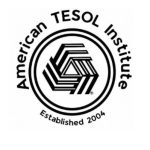Chongming Island, China, is perfect for the adventurous teacher who wants to live large on a tight budget—think budget-friendly bars, live music nights under lantern-lit streets, and impromptu beach bonfires with new friends. With affordable guesthouses and bike rentals, you can explore hidden fishing villages by day and hit low-cost night spots by evening, where drinks start at just $2 and cover charges are virtually nonexistent. As the island grows each year, new venues pop up—pop-up parties in riverside pavilions, karaoke rooms that charge by the hour for under $5, and night markets where you can feast on local snacks for a few dollars. For English instructors seeking an immersive teaching experience, Chongming Island offers professional prospects alongside adrenaline-pumping adventures, all while cultivating a lifestyle centered on frugality, leadership, and memorable, wallet-friendly celebrations.
1. Frugality as a Leadership Trait
Defining Frugality in a Leadership Context
- Resource Awareness: Great leaders recognize that every resource—time, money, energy—holds value. They model mindful consumption, showing that maximizing limited resources often yields greater innovation.
- Intentional Decision-Making: Rather than equating success with extravagant spending, frugal leaders make deliberate choices: purchasing only what they need, repurposing materials, and avoiding waste. This mindset fosters creativity, problem-solving, and resilience.
- Leading by Example: TESOL teachers who embody frugality demonstrate to students and colleagues that living simply can still be rich in experiences and professional growth. On Chongming Island, where community bonds are strong, adopting a frugal lifestyle aligns naturally with local values.
Why Frugality Cultivates Leadership Skills
- Budget Management: Keeping a lean budget trains teachers to prioritize educational tools, classroom resources, and professional development without overspending.
- Adaptability: Frugal living often requires adapting to unexpected challenges—finding alternative transportation, locating affordable housing, or cooking with limited ingredients. Such adaptability translates into classroom flexibility when lesson plans need on-the-fly adjustments.
- Empathy & Community Bonding: By embracing shared resources (like apartment-sharing or community bike-sharing), teachers build stronger relationships with locals and fellow expats. Empathy, a hallmark of effective leadership, grows when one understands and respects others’ economic realities.
2. Cultivating Contentment through Simplicity
Mindset Shifts
- Abundance vs. Scarcity: Recognize that contentment doesn’t hinge on material wealth. On Chongming Island, riverside parks, rural vistas, and communal gathering spots remind residents daily that quality of life often comes from simple pleasures—sunsets over rice paddies or a bicycle ride along village roads.
- Gratitude Practice: Begin each day by listing three things you appreciate—perhaps the sight of farmers tending fields at dawn, a hot bowl of local noodles for $1.15, or a productive lesson that sparked student engagement. Gratitude refocuses attention on positive, low-cost experiences.
Daily Rituals for a Contented Life
- Morning Tai Chi by the Riverside: Joining a free tai chi group at dawn not only nurtures physical well-being but also fosters a reflective habit—reminding teachers that balance often arises from quiet, frugal moments.
- Cooking Simple, Nutritious Meals: Embrace a weekly meal-prep routine using seasonal produce purchased at the Chongming wet market. For roughly $115–$144 per month, teachers can create healthy lunches that rival the price (and taste) of most restaurant fare. Preparing your own meals also allows for mindful eating—a cornerstone of contentment.
- Unplugged Socializing: Host a “board-game night” or “poetry exchange” in your shared apartment instead of costly café outings. Conversations, laughter, and intellectual exchange strengthen bonds far more than any pricey venue.
Balancing Work, Rest, and Leisure
- Structured Schedules: With average teaching hours from 8 AM–12 PM and 2 PM–5 PM (allowing afternoons free for personal pursuits), adopt a routine that reserves time for both professional grading and restorative activities.
- Restorative Breaks: Use midday breaks to walk along the riverside trails (no admission fee) or to read in a public park shaded by willows, reinforcing that rest can be both free and rejuvenating.
- Intentional Weekends: Rather than spending on expensive trips, explore local villages by renting a shared e-bike (approx. $2.85/day) and discovering ancient fishing docks or hidden tea houses—experiences rich in cultural insight but easy on the wallet.
3. Practical Frugal Strategies for TESOL Teachers on Chongming Island
Housing & Utilities
- Shared Accommodation: Seek a two-bedroom apartment near the teaching districts (rent: $215–$315 USD/month). By sharing with another teacher, each occupant pays around $108–$158/month.
- Utilities & Internet Bundles: Negotiate with property managers to include basic internet ($14–$21 USD/month) and water ($7 USD/month) in the rent. Use minimal heating in winter—relying on heavy quilts and layered clothing to cut electricity bills (often under $29 USD/month).
- Energy Conservation: Since many local buildings incorporate passive-cooling designs, open windows in the evening to let fresh air circulate. Use a small fan (approx. $7 USD) rather than air conditioning—saving both on cost and energy.
Transportation
- E-Bike Ownership: Purchase a reliable secondhand e-bike for $100–$129 USD. This covers most local travel needs (school commute, grocery runs) while eliminating daily bus fares.
- Public Transit Cards: For occasional longer trips, register for the Chongming transport card. A one-way bus ride costs roughly $0.21 USD, but loading at least $7 USD at once often triggers a 5 % discount.
- Walking & Cycling Paths: Take advantage of the extensive network of cycling routes that wind through farmland and villages—both cost-free and health-promoting.
Groceries & Meal Planning
- Wet Market vs. Supermarket: Shop at the Chongming wet market, where seasonal leafy greens cost under $0.29 USD per half-kilogram and local eggs go for $0.12–$0.14 USD each. Supermarkets often charge 10–20 % more for the same items.
- Bulk Staples: Buy rice, flour, and tofu in 5 kg or larger batches to secure volume discounts (rice at roughly $0.43 USD/kg).
- Meal-Prep Schedule: Allocate two hours every Sunday to cook six days’ worth of lunches—stir-fried vegetables, scrambled eggs, and rice—costing no more than $14 USD total for six servings. Compare that to $25–$32 USD if purchasing individual restaurant meals.
Classroom Resources & Teaching Tools
- Digital Materials Over Print: Use free online platforms (e.g., British Council, VOA Learning English) to source worksheets and audio clips instead of purchasing printed textbooks.
- DIY Visual Aids: Create flashcards from recycled cardboard (collected at local recycling points) and use old newspapers or magazines for reading-comprehension exercises.
- Interactive Low-Cost Activities: Incorporate games like “word relay” or “mini-debates” that require no expensive props—just teamwork, creativity, and a willingness to adapt materials you already have.
4. Amazing Fun Facts about Chongming Island
- Migratory Bird Haven: Each winter, over 40,000 migratory shorebirds—including Siberian cranes and red-crowned cranes—touch down in nearby reserves. Birdwatchers can spot them for free along designated observation platforms.
- Ferry Link to Shanghai: Chongming Island is accessible by a high-speed ferry from Shanghai; a one-way ticket costs around $7 USD. The 70-minute ride across the Yangtze River offers scenic views and a chance to see the Shanghai skyline.
- Rapid Development: Although some planned projects remain on hold, Chongming Island’s population has grown due to suburban expansion. As new residential areas emerge, teachers can witness—and participate in—community development initiatives, such as volunteering to provide English signage or community classes.
- Floating Wetland Parks: Certain public areas feature “floating gardens” that drift on constructed ponds—showcasing how residents blend everyday life with natural landscapes. At sunrise, these platforms become serene spots for tai chi or morning yoga.
- Local Specialty: Chongming Pears: Grown in nearby orchards, these sweet, juicy pears sell for as little as $0.43 USD each. They’re a healthy snack and make popular gifts to bring to colleagues or host families.
5. Awesome Things to Do on Chongming Island When You’re Not Teaching
Explore Nature Reserves & Rural Villages
- Self-Guided Birdwatching: Bring binoculars (roughly $7 USD secondhand) and follow marked trails in nearby wetland reserves. Peak migration season (November–March) offers spectacular sightings of cranes, herons, and egrets.
- Village Exploration: Rent an e-bike for $2.85 USD/day or borrow from fellow teachers. Discover 800-year-old temples, local tofu factories, and riverside teahouses—many of which offer tea tastings for under $1.43 USD. Enjoy tranquil rural roads and friendly local vendors.
Sunrise Tai Chi & Sunset Walks
- Morning Sessions: Join locals at 6 AM for free tai chi classes by the riverside—perfect for grounding yourself before a busy workday.
- Evening Promenade: Stroll along the embankment at dusk to watch fishing boats return. Vendors often sell warm jianbing (Chinese crepes) for $0.71 USD, making for an authentic, low-cost snack.
Weekend Cycling Excursions
- Island Loop Ride: Pedal a 35 km circuit through rice paddies and marsh grasses. Stop at small roadside stalls selling fresh pearl milk tea (approx. $0.86 USD) and crispy scallion pancakes (approx. $0.57 USD).
- Cross-Island Trip: Take the ferry to nearby Chongming’s main town (approximately $7 USD one way) and cycle further to hidden tea houses or local markets.
Cultural & Community Events
- Weekend Calligraphy Workshops: Held at the community center (free admission), local masters teach basic brush techniques—an enriching, zero-cost cultural experience.
- Volunteer English Clubs: Partner with local NGOs to run free conversation classes for children and adults. These clubs meet in donated spaces, and participation often includes shared meals (often provided by local families as a thank-you).
- Seasonal Festivals:
- Chongming Peach Blossom Festival (Spring): Admission is typically under $3 USD. Stroll through pink orchard tunnels and join impromptu poetry readings under blooming branches.
- Lantern Festival (February/March): Community-organized lantern-making workshops cost around $0.71 USD, and evening lantern displays along riverside promenades are free to enjoy.
Cooking & Culinary Workshops
- Local Home Cooking Classes: For $7–$11 USD per person, join a neighborhood chef to learn how to prepare Chongming-style dumplings, fresh tofu, and stir-fried wild greens. You not only pick up frugal recipes but also gain insider tips on sourcing fresh ingredients from the wet market.
- Seasonal Foraging Trips: In early summer, locals invite visitors to harvest water chestnuts and wild mushrooms from nearby fields (small fee for guided tours: $4.29 USD). Afterwards, share a communal meal, reinforcing the social fabric that defines frugal, community-oriented living.
Relaxation & Mindfulness Spots
- Floating Garden Park: Find a quiet corner on a floating platform to meditate or journal. Entry is free, and the gentle rocking of the platform offers a soothing backdrop.
- Riverside Tea Houses: Enjoy a pot of locally grown green tea for approximately $2.14 USD, paired with free access to English-language newspapers or magazines—ideal for decompressing after a long teaching week.
6. Bringing It All Together: Thriving as a Frugal TESOL Teacher
- Embody Leadership Values: By practicing frugality, you model resourcefulness, adaptability, and empathy—qualities that resonate with students and colleagues alike.
- Foster Contentment: Recognize that contentment on Chongming Island arises from experiencing its rural charm, engaging in community, and valuing low-cost yet high-meaning activities over material excess.
- Engage with the Community: Volunteer in local English-teaching initiatives, participate in cultural celebrations, and share your own skills—whether it’s leading a budget-friendly cooking demo or hosting a free grammar clinic.
- Prioritize Well-Being: Build daily rituals—morning tai chi, weekend bike rides, communal meals—that center you, reduce stress, and remind you that a fulfilling life doesn’t require a large bank account.
- Celebrate Frugal Successes: Set monthly savings goals (e.g., saving $286 USD out of a $943 USD salary) and track your progress. When you hit those milestones, treat yourself with a small reward—perhaps a special tea or a day trip to nearby Chongming Island attractions.
Apply to Teach
Become TESOL Certified and begin applying to schools in China today. ATI also provides teacher placement support post certification.
Living and teaching on Chongming Island offers TESOL instructors a rare opportunity to merge professional growth with a deeply intentional, frugal lifestyle. By embracing frugality as a leadership trait, cultivating contentment through simplicity, and taking full advantage of Chongming Island’s cultural and community offerings, teachers can thrive both inside and outside the classroom. Ultimately, mindful choices—be they economical meal plans, shared housing arrangements, or free morning tai chi sessions—will enrich your experience, deepen your connections, and remind you that quality of life often springs from the simplest of sources.



